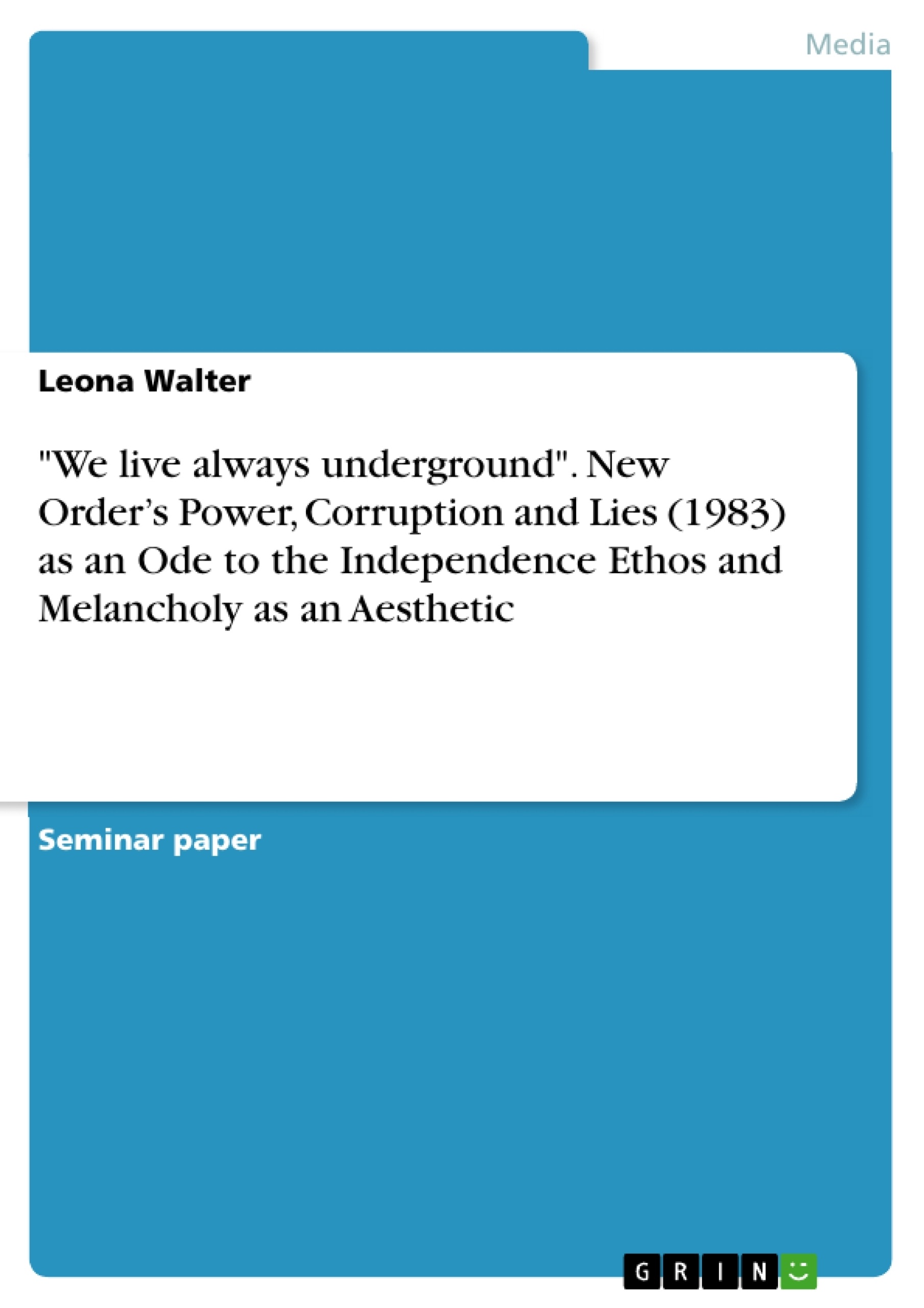Power, Corruption & Lies is the sophomore album of Manchester band New Order. New Order’s position within the independent and mainstream divide of popular culture will be examined by looking closely at their immediate surroundings and motives. The album’s significance to popular culture is demonstrated through an album analysis and the synthesis of adequate academic literature and interviews of associates. The analytical tool of semiotics will be applied, as proposed by theorist Michael Riffaterre, in order to create meaning from the album’s lyrics.
Table of Contents:
1. Independence as a Paradigm in Power, Corruption & Lies
2. Independent and Mainstream Divide of Popular Culture
3. Manchester During the 1980s: Factory Records and The Hagienda
4. Theoretical Framework
5. Analysis of Power, Corruption & Lies
6. New Order as Pioneers of 'Madchester' and Rave Music
7. Bibliography
8. Appendix
- Quote paper
- Leona Walter (Author), 2020, "We live always underground". New Order’s Power, Corruption and Lies (1983) as an Ode to the Independence Ethos and Melancholy as an Aesthetic, Munich, GRIN Verlag, https://www.hausarbeiten.de/document/962696



